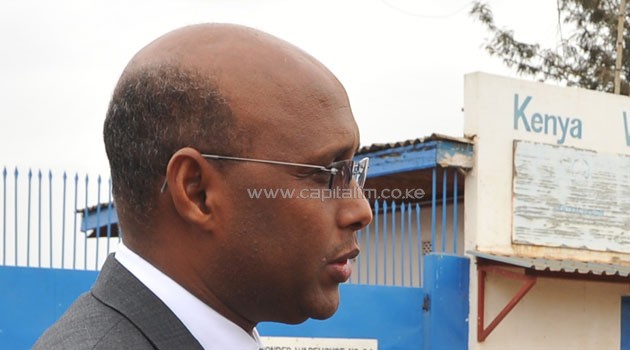
Industrialisation Cabinet Secretary Adan Mohammed says this is aimed at reducing duplication of development programmes hence cut on wastage of resources/FILE
Industrialisation Cabinet Secretary Adan Mohammed says this is aimed at reducing duplication of development programmes hence cut on wastage of resources.
Under a new framework of Trade and Private Sector Development Working Group, the Ministry plans to carry out analysis of programs which are being implemented by the development partners, address those which have stalled and look at what projects need to be established.
“This is really trying to put everything on the table, get the stakeholders so that we know where we are going. We need to have our partners doing different projects so that we make sure we have a wide coverage of all key areas that require development and growth,” the CS said after the meeting with representatives from various development partners on Monday.
They included those from World Bank, International Finance Corporation (IFC), Department for International Development (DFID), United States Agency for International Development (USAID), United Nations Development Programme (UNDP), European Union and Danish International Development Agency (Danida).
The CS said the immediate plans include the development of the leather sector, textile and apparel sector, food-processing, furniture and the SME sector.
“On the leather sector we want to make sure that we have few hides being exported and I believe the government has already established measures to minimize that. We want to make our own quality and affordable leather shoes, bags, and many other items from here,” the CS said.
On the textile sector, the CS said his ministry will work with the development partners to ensure increase in manufacturing of local garments and reduce the importation of second hands clothes.
“People buy ‘mitumba’ clothes because they are cheap. But we plan to be more competitive by putting favourable tax measures that will support our textile sector. You know we already exporting a lot of our locally made garments and we want to intensify that,” he said.
On the other hand the ministry plans to ensure that 30 percent of government furniture is locally made through a Buy Kenya Policy which currently under development.
Apart from the 30 percent procurement rule, the Buy Kenya Policy, expected to be ready in a year’s time, is aimed at changing Kenyan’s perception and encourage them to buy locally made furniture and other products.
It will also motivate SMEs to buy and supply goods among themselves unlike currently where even most of the basic goods are imported.
“Apart from financing the new programmes, will be seeking technical expertise from the development partners especially when coming up with new programmes to grow the identified sectors. We want to know what has worked in other countries that can work in Kenya,” Mohammed said.









































